Of Annunciation and Acceptance
Why? (Warning: here begins what I would call "pure theology.") Because the utterance is the Word of God, or, in the Greek expression, it is Logos. That is, "Let there be light," when divinely uttered, both manifests and contains the Word of God spoken of in the Bible. What the utterance says, therefore, cannot not be true.
But, I would contend, we must understand this type of self-contained analytic necessity of God's "logos utterances" to be ineluctably true only after we factor out our usual modern conception of time.
 My view of this matter goes along with what Albert Nolan's Jesus before Christianity says about the biblical (and Jesus's) understanding of time, quite different from our modern concept. Nolan says we think of time as a quantitative measuring tool, a yardstick for events. That's anything but biblical. In the Bible, time can't be separated from events.
My view of this matter goes along with what Albert Nolan's Jesus before Christianity says about the biblical (and Jesus's) understanding of time, quite different from our modern concept. Nolan says we think of time as a quantitative measuring tool, a yardstick for events. That's anything but biblical. In the Bible, time can't be separated from events.For Biblical time is qualitative, not quantitative. It is dispensational, in the sense that every individual "time" is imbued by God with its own particular quality or dispensation, recognizable through the "signs of the times."
For instance, the "time" of John the Baptist was qualitatively distinct from the "time" of Jesus, even though the two "times" overlapped in the modern, quantitative, scientific view of time as a measurable flow. John's "time" was one for repentance, the Gospels say, while Jesus's "time" was one for joyful celebration.
That celebratory mode or dispensation, clearly, was appropriate for the coming of the kingdom of heaven, spoken of also as the coming of the Son of Man. It was thus the dispensational quality pertaining to Jesus's "time."
In the symbolism of Revelation, the final book of the New Testament, God's ultimate victory is characterized as one in which a returned Christ weds his Bride — the Bride of Christ being us, his Church as a corporate body, here in our world.
But Jesus himself warned that we are not to know the hour and the day of these so-called end things. "But of that day and hour no one knows, not even the angels of heaven, nor the Son, but the Father only," Jesus says in Matthew 24:36.
One of the messages here, from the point of view of us moderns, is that our objective, quantitative, measurable, scientific notion of time has nothing to do with God's words coming true at some supposed time "in the future." God's words are always already true.
When we try to translate that notion into our own modern terms, we are hamstrung by our intellect's insistence that they, God's words, must correspond to our concepts of causality in time. Our science tells us of cause-and-effect relationships that play out in the physical world in which time has a given, uniform, tick-tick-tick quantity. All time is relative, true, but it is relative to the speed of light — the absolute time it takes for light to travel from point A to point B in a vacuum. The speed of light is a constant of physics. And physics is the base of all science.
But, no. God's "logos power" to utter propositions that are always already true — shall we now call these utterances "commands" or "annunciations"? — is causality outside time, when time is construed in the unbiblical way in which we moderns are wont to construe it.
I call God's logos utterances "annunciations" because of another well-known event in the Christian Bible in which the Lord God takes as his "bride" a being from this world: Mary, mother of Jesus. This event is preceded by the announcing angel Gabriel coming to Mary and telling her "you will conceive in your womb and bear a son" (Luke 1:31). Mary, taken quite by surprise, since she was as yet without a husband, signals her acceptance of the angelic annunciation by saying, "Behold, I am the handmaid of the Lord; be it done to me according to your word" (v. 1:38).
Then, in verse 1:45, the coming true of all this is spoken of as a "fulfillment" (Revised Standard Version). So the fulfillment of divine commands, which has to do with causality outside time, takes place, from our perspective, in time. Confusing, huh? We have to think of this scenario in two mutually contradictory senses at once. At one and the same time, the Incarnation was always already true, and it depended on Mary's contingent acceptance of the angel's annunciation to her.
Clearly, in the Virgin Birth we're not dealing with something that makes sense from the perspective of our modern scientific ideas of causation and time. Science is blind to the Incarnation. Science deals with nomic necessity — natural law — and (if I am right) the fulfillment of God's logos utterances is more akin to analytic necessity, once the dimension of "scientific time" as a quantity, not a quality, has been collapsed right out of our understanding of biblical experience.
We have to do the same sort of mental "collapsing" to make sense of Jesus's proclamation that his "kingdom of heaven" is both "at hand" and yet to come, do we not? We have to collapse that promise as we read it in the Gospels together with that found in the book of Revelation to understand that the fulfillment of these twin promises is a single event that was always already true. It's just that our modern view of time as a series of steady ticks of a cosmic clock obscures the biblical view of "times" as epochs of fulfillment of God's preconceived intentions.
So it makes no sense to see a scientific-historical view of biological evolution, à la Darwin, as somehow contradicting the Bible. It doesn't contradict the Bible, and the Bible doesn't contradict it. Rather, the Bible is talking about divine creation or genesis as causality outside time which in unfathomable ways breaks into the field of time.
We read in the book of Genesis about the six days of creation, followed by a seventh day of rest. But that can't be tick-tick-tick-tick time in our modern, scientific sense, since there was as yet nothing to tick. Each day has to be a sort of epochal "time" in the Biblical sense: a disposition, a mode of experiential events, a fulfillment of God's original intent.
Science is blind to that. Science deals only with the nomic necessity of natural law, not with any sort of logical, or analytic, necessity wherein the utterance itself ("Let there be light") contains all of its own certainty and truth.
To science, such logos utterances are magic. They are mystery personified.
Intelligent Design theory doesn't allow for that insight. To IDers, God must operate causally-in-time in ways we can model in our heads. Complex organs like eyes and wings are, to them, more like productions than creations. God produces them in much the same way a watchmaker produces a watch.
I, on the other hand, envision God in eternity as making logos utterances like "Let there be sight" and "Let there be flight." They in turn create that which is always already true by virtue of what we might label analytic necessity ... but which we in the field of tick-tick-tick time experience as an inception, an advent that shows up at some point in the fossil record. Before, no wings. After, wings.
Again, science is blind to that type of "logos causation." It is causation outside time. Science can deal only with causation in time.






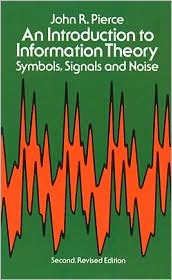

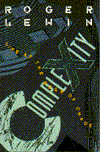

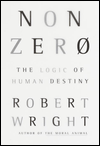

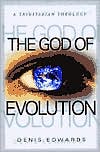

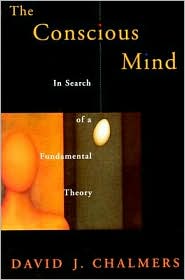
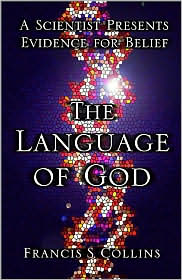


0 Comments:
Post a Comment
<< Home